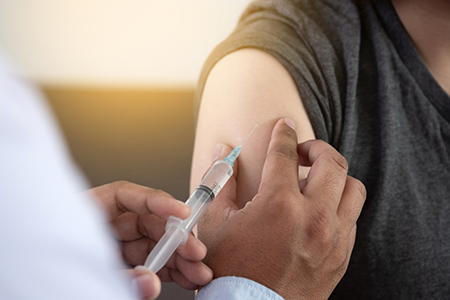 Human papillomavirus (HPV) is most well-known for its link to cervical cancer. According to the World Health Organization, almost all cases of cervical cancer are connected to an HPV infection. However, HPV can affect the body in other ways too. This common virus is often passed from person to person through sexual activity. And many people have HPV without even knowing it.
Human papillomavirus (HPV) is most well-known for its link to cervical cancer. According to the World Health Organization, almost all cases of cervical cancer are connected to an HPV infection. However, HPV can affect the body in other ways too. This common virus is often passed from person to person through sexual activity. And many people have HPV without even knowing it.
Because HPV is so prevalent, health experts recommend vaccination for everyone to prevent HPV—before it can cause health concerns. If you’re wondering about vaccination for yourself or your child, here are some of the most common questions about the HPV vaccine.
Who should get the HPV vaccine?
In general, the Centers for Disease Control and Prevention recommends vaccination for children at age 11 or 12—typically the time before a person becomes sexually active. This includes both girls and boys. However, teens and younger women may be given the vaccine as well. If you’re 26 or under, talk to your OB GYN about the potential benefits of getting vaccinated. In some cases, those between 26 and 45 may benefit too if they are at risk of getting a new HPV infection.
How many doses are required?
The number of vaccine doses depends on age. Children who receive the vaccine at age 11 or 12 typically need two doses. These are given six to 12 months apart. Those over 15 will likely need three doses of the vaccine spaced over six months.
What does the HPV vaccine protect against?
There are dozens of types of HPV that can infect the body. Some types increase the risk of cervical cancer as well as cancer of the anus, penis, vagina, mouth, or throat. Other types may cause genital warts. When it’s given before a person becomes sexually active, the American College of Obstetricians and Gynecologists says the vaccine is 99 percent effective at preventing the most common types of HPV infections that cause genital warts and cancer.
What are the risks?
Like any vaccine, there are some potential side effects. Typically, these are not serious. The U.S. Department of Health and Human Services says the most common side effects include fever, headache, or pain and redness where the shot was given. It’s also important to let your doctor know if you have any allergies or past reactions to vaccines.
What are the benefits?
In addition to the benefits of protection against cancer and genital warts for the person who receives the vaccine, HPV vaccines help protect others too. When the majority of people are vaccinated, it helps reduce the spread of HPV to those who aren’t vaccinated. The National Cancer Institute says widespread vaccination could reduce HPV-related cancers around the world by 90 percent.
Do those who have been vaccinated still need a Pap smear?
Even if you’ve had the HPV vaccine, routine screenings are still important. The vaccine doesn’t protect against every type of HPV. As a result, the Office on Women’s Health says women between the ages of 21 and 65 should still get routine Pap smears. These screenings work together with the HPV vaccine to help protect against cancer.
If you have more questions about the vaccine or what cervical cancer screenings you need, talk with your OB GYN. Many factors affect your risk of an HPV infection and related cancers. Your doctor can help give you the latest information on recommendations and how to best protect yourself.
